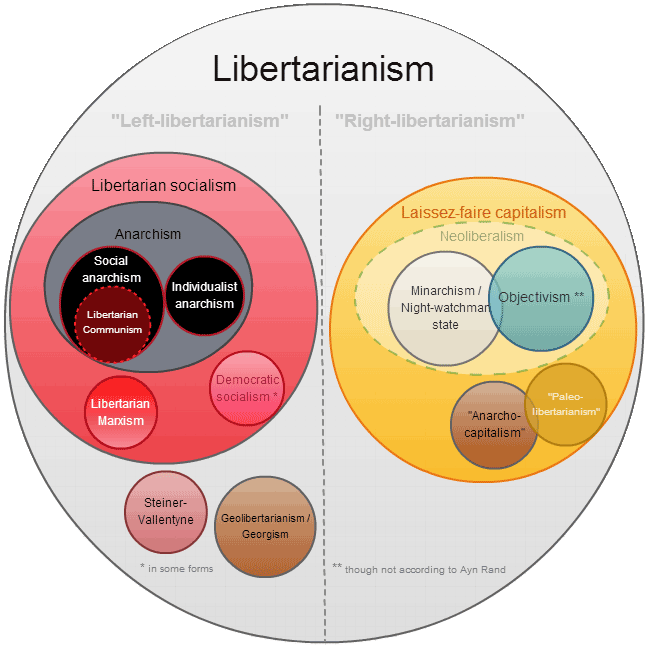- Q: Are libertarianism and socialism mutually exclusive?
- A: No. Libertarians believe liberty consists of personal autonomy, and they justify a strong distrust of the state upon this foundation. Socialism is a social and economic system characterised by social ownership of the means of production and co-operative management of the economy, as well as a political theory and movement that aims at the establishment of such a system.[1] Although socialism is commonly associated with the planned economies proffered by Marxism-Leninism and other "authoritarian socialists," libertarian socialism rejects economic direction from a central authority such as the state.[2] Thus, libertarianism and anarchism have been synonyms since the 1890s,[3] and other equivalents include libertarian socialism,[4] socialist anarchism,[5] and left-libertarianism.[6] The libertarianism of the 19th century had two strong currents, social anarchism and individualist anarchism, both of which fall under the umbrella of libertarian socialism and were explicitly anti-capitalist.[7][8]
- In the 20th century, members of the Old Right in the United States such as Albert Jay Nock and H. L. Mencken[9] began identifying as libertarians to declare their commitment to individualism and distance themselves from liberals who supported welfare capitalism. Some libertarians (e.g. Murray Rothbard, who popularized the libertarian philosophy anarcho-capitalism) were explicitly influenced by the American individualist anarchists, but most were "a rather automatic product of the American environment."[10] This modern American libertarianism is also referred to as right-libertarianism.[11]
- Q: What is right-libertarianism? What is left-libertarianism?
- A: Right-libertarianism refers to those libertarian ideologies that extoll private property without recompense paid by the owner to the local community, and includes anarcho-capitalism and laissez-faire, minarchist liberalism.[11] This is contrasted with left-libertarianism, which either rejects private property, or accepts it only under the condition that the local community is compensated for the exclusionary effects thereof (e.g. a land value tax).[12] Left-libertarianism includes libertarian socialism,[6] left-wing market anarchism,[8] and geolibertarianism.[13]
- Q: How are all these political philosophies related? Which ones are closely related or inclusive?
- A: Some labels and qualifiers are typically used to group together multiple political movements or ideologies or distance them from others. Below is a rough and simplified visual representation of how many of the political camps described in the article (i.e. groups that have either identified or been described as libertarian) relate to one another, without any regard to their affinity for one another, their prominence or their significance.
References
|
|---|
|
